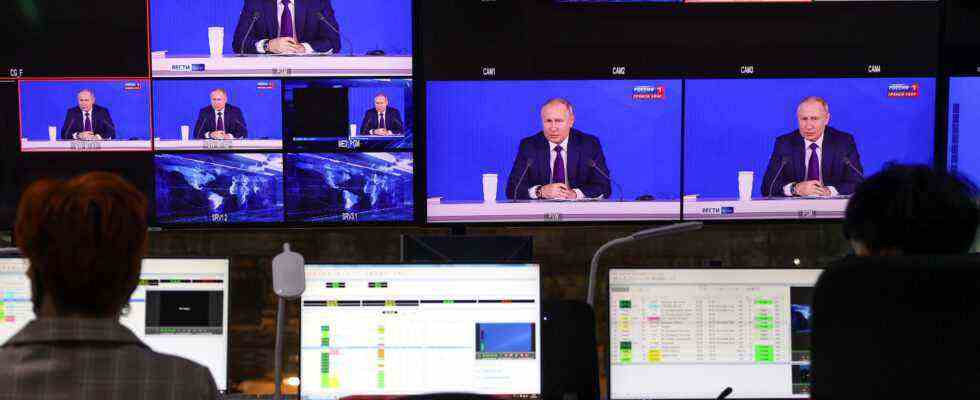Status: 01/26/2022 10:49 a.m
“Manoeuvres” instead of marches on the Ukrainian border, “suggestions” instead of threats from the Kremlin: Russia’s media paint a completely different picture of the Ukraine crisis than their Western counterparts.
Anyone who has followed the news on Russian television, which is still the number one opinion maker, has seen one thing in particular: conference rooms, meeting rooms, video switching. Negotiations in changing occupations at different locations on the issue, which Russian President Vladimir Putin believes is central: “We have to know how our security is to be guaranteed.”
The Kremlin demands that there is no further eastward expansion of NATO. No more admission of Ukraine and Georgia, no more maneuvers, troops or weapons of the alliance in Eastern Europe, Central Asia and the South Caucasus. Moscow wants written guarantees because – so the argument goes – the West is not keeping promises it has made.
Deputy Foreign Minister Sergei Ryabkov assured that the role of diplomacy is key: “We don’t want any conflict. We don’t attack anyone. We don’t threaten anyone. We just want to reliably safeguard our interests.”
“The Kremlin doesn’t understand that”
The massive Russian troop deployment, the stationing of additional military technology along the Ukrainian border – all of this is rarely a topic on state-affiliated television. If so, then we are talking about “maneuvers”.
Corresponding satellite images are more likely to be discussed at expert level on relevant sites on the Internet. Even in the Kremlin-critical media, experts like political scientist Ivan Preobrazhensky are talking about the risks for Russia if the Ukraine crisis as such worsens.
He says: “If it turns out that war is cheaper than continuing peace with Russia, the West will be ready to fight. But I don’t think the Kremlin understands that.”
Beware of an escalation
There are now growing concerns that the situation could escalate. And that is also reflected in the headlines of some newspapers: “Kommersant” sees arsonists at work and warns on the front page that the situation in Ukraine is in the pre-war stage.
The headline in Nezavisimaya Gazeta gives an idea of who is responsible for this from the Russian point of view: “NATO is responding to Moscow’s proposals by moving troops to the East,” it says. The troop movements of the alliance, the arms deliveries to Ukraine, the maneuvers, the withdrawal of embassy staff – all of this is fueling tensions. The Kremlin speaks of “hysteria” and warns against provocations.
According to current surveys, a large majority is convinced that Russia will once again be held responsible for everything. Only four percent of respondents believe that Russia would be to blame should a conflict break out.

